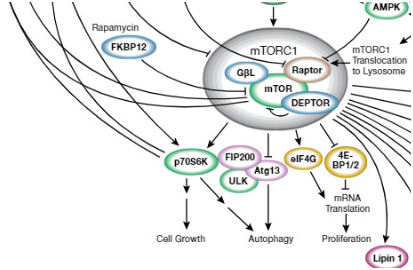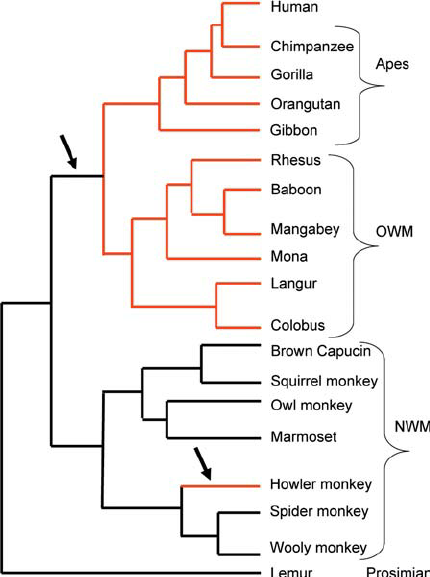mccoy
#41
In the simple graph posted at the beginning of this thread, S6K1 lies at the lower left-hand side, I find strange though that in the graph it activates autophagy, conceptually it should inhibit it

Look at this other graph, mTOR phosphorilates (sends an activation signal to) S6K1, which on it turns sends a signal that turns off autophagy. Should the graph at the beginning be replaced?
5 Likes
In fruit flies and mice etc. but no human studies.
There have been studies of Rapamycin in yeast, fruit flies, mice, and marmosets. All with positive data (with an exception for diabetic mice). The Mannick studies on humans were positive and while there have been no human longevity studies (we just live too long to do that) there have been studies on immune response (Mannick) as well as positive studies on various human organs/systems.
1 Like
KarlT
#44
This is what the other side in the debate will use against us.
Personally, I think most of us here are pretty close to monkeys, and rapamycin extends lifespan and healthspan in marmosets! I suspect its a very small percent of drugs that “work” in monkeys, and not in humans (or vise versa). We’re all primates.

4 Likes
Agetron
#46
I too have no allergies… ,for the past 3 years after having them suddenly in my early 50s… until I started rapamycin. After one year use… all gone
Also, no recovery after exercising - no pain.
Arthritis pain gone.
Never sick very long … if at all …maybe a day… maybe.
I concur… N-2
3 Likes
Here it is late spring… everyone is suffering from pollen… and allergies, but not me.
Amazing. Thanks rapamycin.
3 Likes